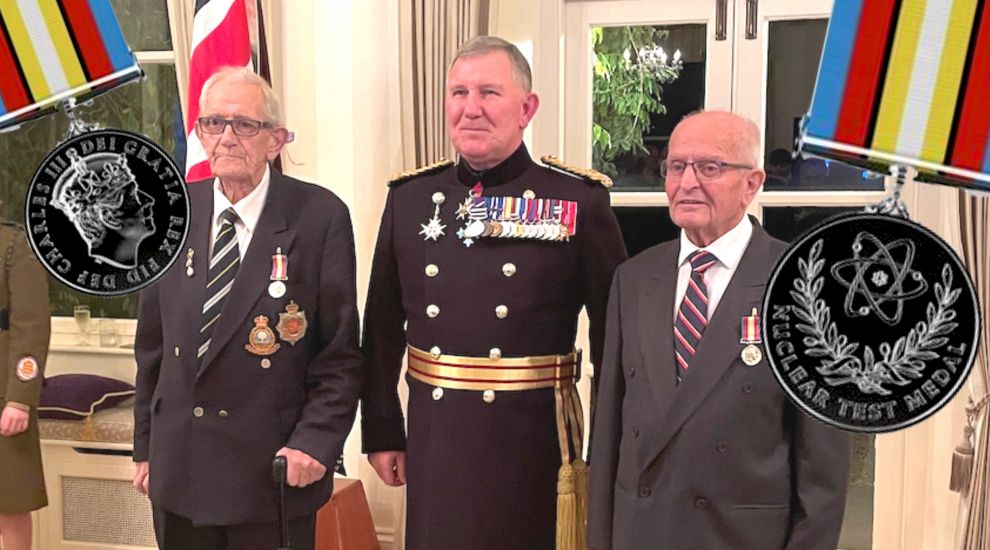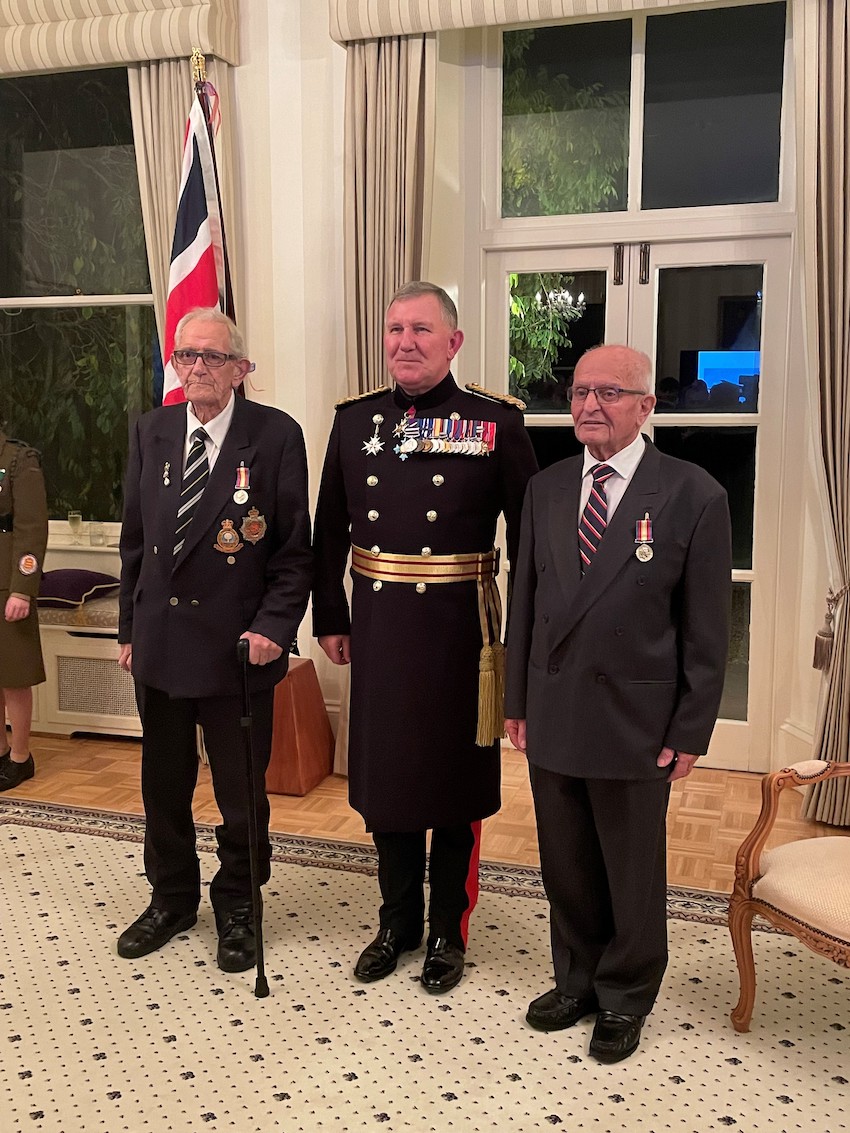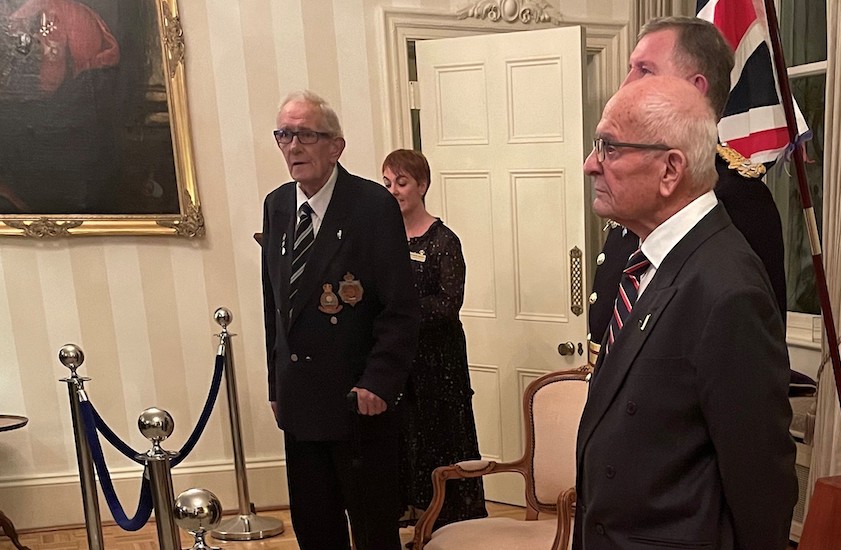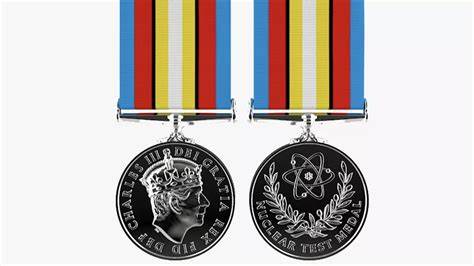


Two Channel Islanders have opened up about the stark impact of nuclear weapon tests in the 1950s as they received special medals for their involvement.
Gerry Robert and Henry Torode, who live in Guernsey, were involved in the British Pacific Nuclear Test Programme, officially known as Operation Grapple.
Mr Robert was 21 and serving as a Corporal in the Royal Army Service Corps when he witnessed the detonation of four nuclear bombs at Christmas Island in the Pacific, in 1957.
He had a clear view from the deck of HMS Messina of the first explosion, which was 12 times bigger than the larger of the two atomic bombs dropped by the USA on Japan in 1945.
The last explosion witnessed by Mr Robert was of a much more powerful 1.8 megaton hydrogen bomb. The watching troops were told to sit with their hands on their knees. He recalled: ‘"When the plane dropped the bomb you could see all the bones in your fingers."
Mr Robert began experiencing the effects of the tests following his return to the United Kingdom. He was rushed to a military hospital after suffering internal bleeding, undergoing nine hours of surgery. He continued to serve in the Army until his retirement in the early 1970s, when he moved to Guernsey and worked as a butcher.

Pictured: Gerry Robert, Lt Gov Richard Cripwell and Henry Torode.
Mr Torode enlisted into the Royal Marines in 1956 and was posted to Christmas Island in 1958 to operate landing craft.
These small vessels ferried thousands of tons of equipment the 1½ miles between anchored Royal Navy aircraft carriers and the shore. He was present for the detonations of two atom and two much bigger hydrogen bombs.
Mr Torode said he will never forget what he saw.
“I remember looking up at the sky and thinking there were two suns. The flames and the fireball were as bright as the sun, if not brighter."
He also recalled seeing the blast wave coming towards him and feeling a burning sensation on the back of his neck.

Pictured: Gerry Robert and Henry Torode.
Guernsey's Lieutenant Governor, Lieutenant General Richard Cripwell, presented Mr Robert and Mr Torode with the new Nuclear Test Medal before an audience of family friends this week.
“This is a very special medal that has been a long time coming," he said.
"We all owe a debt of thanks to Mr Robert, Mr Torode and others like them for the risks they unwittingly faced so long ago.”
The Nuclear Test Medal is a sovereign award, which bears an image of His Majesty The King.
It recognises military, civilian, and overseas staff and personnel who participated in Britain’s nuclear testing programme during the 1950’s and 60’s.

Pictured: The Nuclear Test Medal.
The medal was announced by the UK Prime Minister in November 2022, 70 years after the first British test of a nuclear weapon.
It was estimated that around 22,000 people worldwide are eligible for the medal, including civilian staff from across Australia, New Zealand, Fiji and Kiribati, including scientists and local employees.
The Nuclear Test Medal is also awarded posthumously.
Comments
Comments on this story express the views of the commentator only, not Bailiwick Publishing. We are unable to guarantee the accuracy of any of those comments.